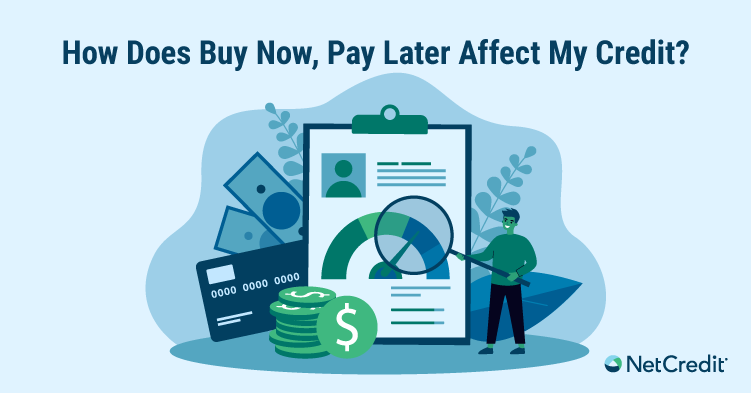If you shop online, you’ve probably been offered a buy now, pay later plan at checkout. This form of short-term financing allows you to pay off your purchase in small chunks, and it usually comes interest free — as long as you make your payments on time.
All of this sounds great, but first-time users might have some questions. One in particular might rise to the top:
How does buy now, pay later affect my credit?
The impact a buy now, pay later loan has on your credit depends on a number of factors. In some cases it might help. In others it might hurt or have no impact at all. But in general, if you make all your payments on time, you shouldn’t have anything to worry about.
Looking to keep buy now, pay later on your side? Here’s what you need to know.
Buy Now, Pay Later Won’t Affect Your Credit Unless Reported to the Credit Bureaus
Many buy now, pay later plans don’t report to the credit bureaus, meaning they won’t affect your credit score. But some lenders do report your activity, so you’ll need to read the fine print to find out whether or not your history will be reported.
Not reporting to the bureaus can be a double-edged sword. On one hand it won’t help you build credit if you’re making your payments, but on the other hand, late payments won’t damage your score unless they’re sent to collections.
If you’re new to credit or trying to rebuild, you can use other products like an online loan or line of credit that will report your positive history to the bureaus and give your credit a boost.
If You Want To Build Credit, Find the Right Plan
If you have less-than-perfect credit, you may find that you have better luck qualifying for a buy now, pay later plan. These plans are a good way to ease into using credit, typically starting off with small amounts, lessening the risk of overspending.
As you build your credit confidence, you can also build your score — if you take the time to find the right plan. This plan will report your payment history to the credit bureaus, meaning your on-time payments may give your score a boost. But keep in mind that late or missed payments could damage your score.
Missed Payments Are Never Good
Missing payments is never good, but not all buy now, pay later plans report to the credit bureaus. This means if you miss a payment then catch up quickly, your credit likely won’t take a hit — though you may be faced with some hefty fees.
This doesn’t mean that there’s no risk. If you default on your payments, the lender will send your debt to a collection agency and the credit bureaus will be notified. Payment history accounts for around one-third of your credit score and when your debt is sent to collections the negative mark can stay on your record for seven years.
Of course, if your plan does report to the credit bureaus then missing a payment cycle can be reported and drop your credit score.
Watch Out for Hard Credit Checks
When borrowing from a traditional lender, they will often perform a hard pull on your credit to determine whether or not lending to you is too big of a risk. These kinds of credit checks can ding your score by a few points. While a few points won’t make a big difference, if you’re constantly applying for credit this can drag down your score.
Some buy now, pay later plans use a hard credit check, while others use data from public records like address stability and banking information. Be sure to read the fine print to ensure you know how your buy now, pay later plan will affect your credit.
Plans Differ, so Read the Fine Print
No two plans are exactly the same, so you may want to do a little research before clicking accept. To start, look for the following information:
- Whether or not the lender reports to the credit bureaus.
- If there are fees or penalties for missed or late payments.
- What the interest rate is — if there is one.
- If they run a credit check, and if so, what kind.
Reading the fine print will help you protect your financial wellness and understand how your buy now, pay later plan affects your credit score.






